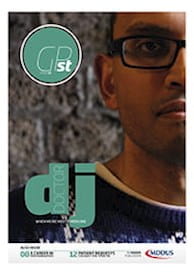
PROFESSIONAL clinical guidelines are a common feature of medical practice today, with GPs responsible for keeping abreast of updated guidance from bodies such as the National Institute for Health and Care Excellence (NICE) and the Scottish Intercollegiate Guidelines Network (SIGN).
The GMC are unequivocal that doctors are personally accountable for their professional practice and must always be prepared to justify their decisions and actions in regard to such guidelines. It goes on to clarify that clinical guidance in itself is not a statutory code and that clinicians must therefore use professional judgment in applying the principles to the various situations they face.
NICE states that its guidance is designed to help healthcare professionals ensure the care they provide “is of the best possible quality and offers the best value for money”. But it also says that its guidance “does not override the individual responsibility of health professionals to make appropriate decisions according to the circumstances of the individual patient in consultation with the patient and/or their guardian/carer”.
One example of a situation where a doctor could justifiably depart from accepted guidelines would be where a patient is likely to suffer a serious adverse reaction to a recommended drug. In these circumstances, it would be appropriate to prescribe an alternative.
Should your routine practice deviate significantly from accepted clinical guidelines this should be reviewed – and if a decision is made to deviate from specific guidance this should be justified in the clinical notes and the patient should be advised of the fact that you hold a different view from that of mainstream practice. Recording your thinking in regard to such a clinical decision may be a crucial factor if challenged at a later time.
A recent MDDUS case highlights the difficulties doctors may encounter in departing from accepted clinical guidelines without adequate reasons for doing so. A 23-year-old female presented initially to her GP with a lump in her right breast of 10 days’ history. The GP noted the presence of a small, firm regular lump of 0.5cm diameter in a fibrocystic breast, and asked the patient to return for reexamination during her next menstrual cycle.
The patient was then examined by a second GP who confirmed and noted that the lump appeared to be larger, although there were other factors that suggested a benign cause. NHS cancer referral guidelines in place at the time stated that a patient who is under 30 with an enlarging breast lump should be referred under the two-week urgent referral pathway. Instead the patient was offered a routine appointment at the local breast clinic under a ‘choose and book’ scheme.
She was seen two months later and on this occasion the breast clinic also provided the patient with a reassuring prognosis and a further delay of several months ensued before the patient was diagnosed with carcinoma of the breast with metastatic disease. Her life expectancy was estimated at two years.
A claim was raised against both the second GP and the local hospital trust. MDDUS obtained an expert GP opinion which was unsupportive of the GP’s actions in not referring the patient urgently in the first place. An additional medical report suggested that had the patient been referred at the appropriate time, the cancer should have been detected earlier with curative treatment being possible.
The GP pointed out that she tended to use clinical guidelines in conjunction with additional factors to weigh up her examination findings, such as age, general well-being, family history, history of any pain, discharge and any noted cyclical changes to nipples or skin. Overall the doctor had found the larger picture reassuring and had suggested the ‘choose and book’ option rather than the urgent referral pathway.
In view of largely unsupportive expert reports which clearly indicated that the two-week urgent referral pathway should have been chosen by the GP, the case was difficult to defend. In this instance the GP did not appear to fully comply with the maxim that when a decision is made not to follow guidelines there should be a logical basis for that decision and the patient should be advised of the fact that the doctor holds a different view.
In summary, it’s important to be aware of and be sensitive to relevant guidelines for common conditions and if your practice deviates significantly from these it should be reviewed. Should you decide not to follow accepted clinical guidelines, ensure you provide a logical basis for your decision and record this in the notes. The patient should also be clearly advised why you decided to deviate from accepted practice.
Alan Frame is a risk adviser at MDDUS
This page was correct at the time of publication. Any guidance is intended as general guidance for members only. If you are a member and need specific advice relating to your own circumstances, please contact one of our advisers.
Read more from this issue of Insight Primary

Save this article
Save this article to a list of favourite articles which members can access in their account.
Save to library


